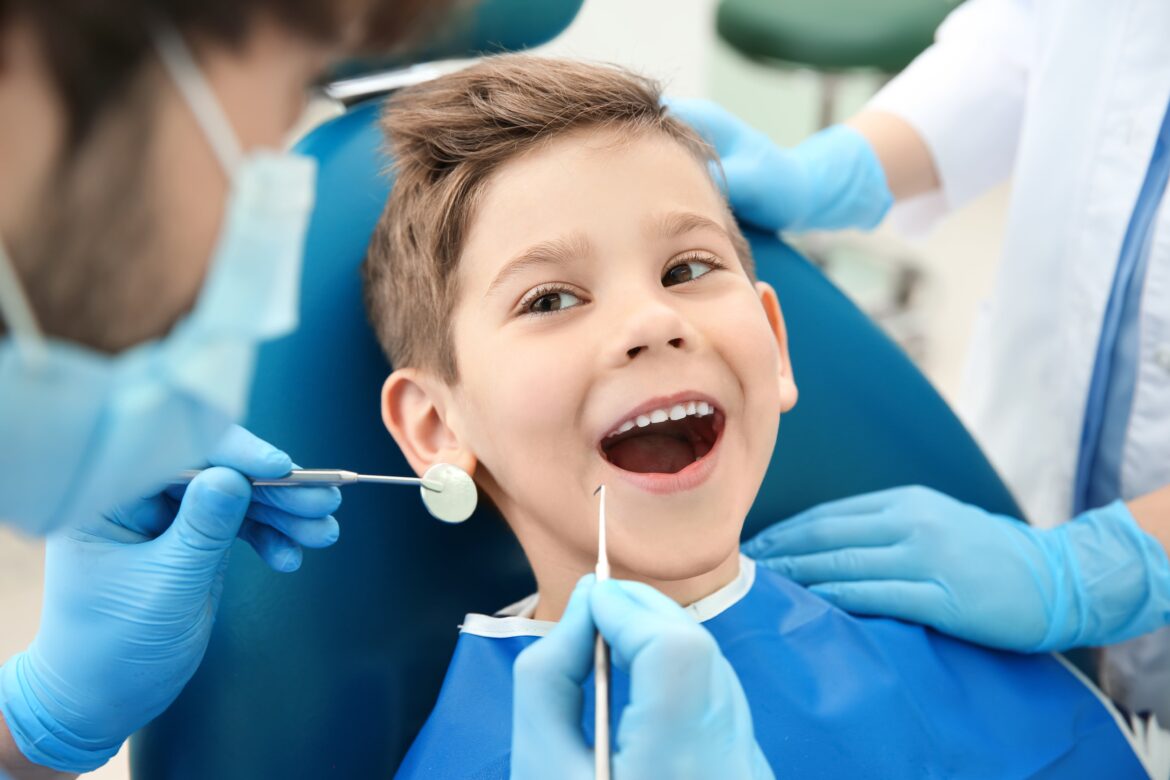Pediatric dentistry, often referred to as pediatric oral health, is a specialized field of dentistry focused on the dental and oral health needs of children, from infancy through adolescence. It’s essential to establish proper oral care habits early in a child’s life to ensure a lifetime of healthy smiles. In this comprehensive guide, we will explore the world of paediatric dentistry, its importance, and key aspects that every parent and caregiver should know.
1. Why Pediatric Dentistry Matters
Pediatric dentistry plays a pivotal role in promoting and maintaining the oral health of children. Here are some reasons why it matters:
– Early Intervention: Pediatric dentists are trained to identify and address dental issues in children as soon as they arise. Future dental issues that are more serious can be avoided with early treatments.
– Establishing Good Habits: Visiting a pediatric dentist from a young age helps children establish good oral hygiene habits and fosters a positive attitude toward dental care.
– Preventing Dental Anxiety: Regular, positive experiences with a pediatric dentist can reduce dental anxiety and fear in children, ensuring they are more likely to continue seeking dental care as adults.
2. When to Start Pediatric Dental Care
According to the American Academy of Pediatric Dentistry, a child should see a dentist for the first time by the time they turn one year old or within six months of the eruption of their first tooth, whichever comes first. Early dental visits are essential for the following reasons:
– Monitoring Development: Pediatric dentists can monitor the development of a child’s teeth and jaw, ensuring any issues are detected and addressed promptly.
– Education: Parents receive valuable guidance on proper oral care for their child, including brushing techniques, diet recommendations, and the importance of fluoride.
– Preventing Tooth Decay: Early dental visits allow for the application of fluoride varnish, which can help prevent tooth decay in young children.
3. What to Expect During the First Visit
The first pediatric dental visit is typically a relaxed and informative experience for both parents and children. Here’s what to expect:
– Oral Examination: The dentist will perform a gentle oral examination to check for any signs of tooth decay, gum problems, or other oral health issues.
– Risk Assessment: The dentist will assess the child’s risk for dental problems based on factors like diet, oral hygiene, and family history.
– Education: Parents will receive guidance on how to clean their child’s teeth properly, nutrition recommendations, and information on fluoride use.
– X-rays (if necessary): In some cases, X-rays may be taken to get a more comprehensive view of the child’s oral health.
4. Common Pediatric Dental Procedures
Pediatric dentists are trained to perform a wide range of dental procedures specifically tailored to children’s needs. Some common procedures include:
– Dental cleanings: By removing plaque and tartar accumulation, dental cleanings help shield teeth from decay and gum disease.
– Fluoride Treatments: Fluoride applications strengthen tooth enamel and reduce the risk of cavities.
– Sealants: Sealants are protective coatings applied to the molars to prevent food particles and bacteria from getting trapped in the crevices.
– Fillings: If a child has a cavity, the dentist will clean and fill the affected tooth to prevent further decay.
– Extractions: In some cases, a baby tooth may need to be extracted if it’s causing problems or not falling out naturally.
5. Dental Care at Home
Proper oral care at home is crucial for maintaining a child’s dental health. Here are some essential tips for parents and caregivers:
– Start Early: Begin cleaning your baby’s gums with a soft cloth or infant toothbrush even before the first tooth appears.
– Use Fluoridated Toothpaste: Once teeth erupt, use a tiny amount of fluoridated toothpaste (about the size of a grain of rice) and a soft-bristle toothbrush.
– Supervise Brushing: Parents should help brush their child’s teeth until the child has the manual dexterity to do it effectively on their own, usually around age 6.
– Limit Sugary Snacks and Drinks: Reduce the consumption of sugary snacks and drinks, as they can contribute to tooth decay.
– Regular Dental Visits: Schedule regular check-ups with the pediatric dentist as recommended to monitor your child’s oral health.
6. Orthodontic Considerations
Orthodontic issues can also be addressed by pediatric dentists. They can identify early signs of misalignment or bite problems and may refer children to an orthodontist for further evaluation and treatment if necessary. Early orthodontic intervention can help correct issues while a child’s jaw and teeth are still developing, making treatment more effective.
7. The Role of Nutrition
Nutrition plays a significant role in pediatric dentistry. A well-balanced diet rich in fruits, vegetables, lean proteins, and dairy products provides essential nutrients for healthy teeth and gums. Limiting sugary snacks and drinks, especially between meals, can help prevent tooth decay. Encourage your child to drink water and consume foods that promote oral health.
8. Managing Dental Anxiety
It’s not uncommon for children to experience dental anxiety or fear. Pediatric dentists are trained to create a welcoming and comfortable environment for young patients. They use child-friendly language, provide gentle care, and offer distractions like toys or TV shows to help children feel at ease during their visits.
9. Emergency Dental Care
In the event of a dental emergency, such as a knocked-out tooth, severe toothache, or injury to the mouth, it’s essential to contact a pediatric dentist immediately. They can provide guidance over the phone and, if necessary, arrange for urgent care to minimize potential complications.
Conclusion
Pediatric dentistry is a critical component of a child’s overall healthcare, focusing on oral health from infancy through adolescence. By starting early, maintaining regular dental visits, and practicing good oral hygiene at home, parents and caregivers can ensure that children develop healthy smiles that last a lifetime. Pediatric dentists are not just oral healthcare providers; they are partners in promoting the well-being and confidence of your child as

